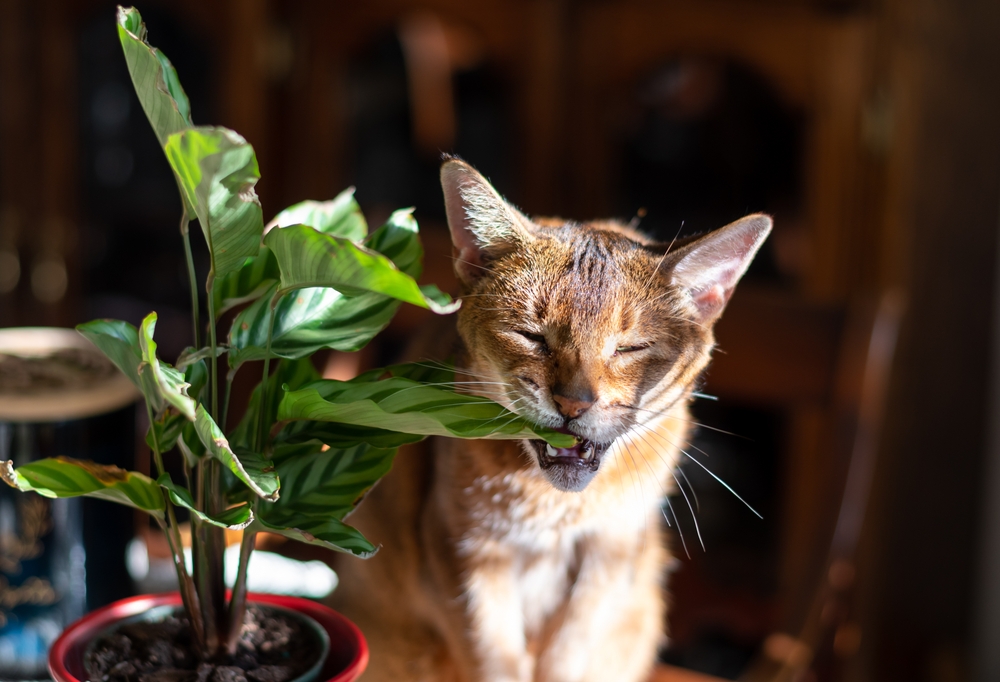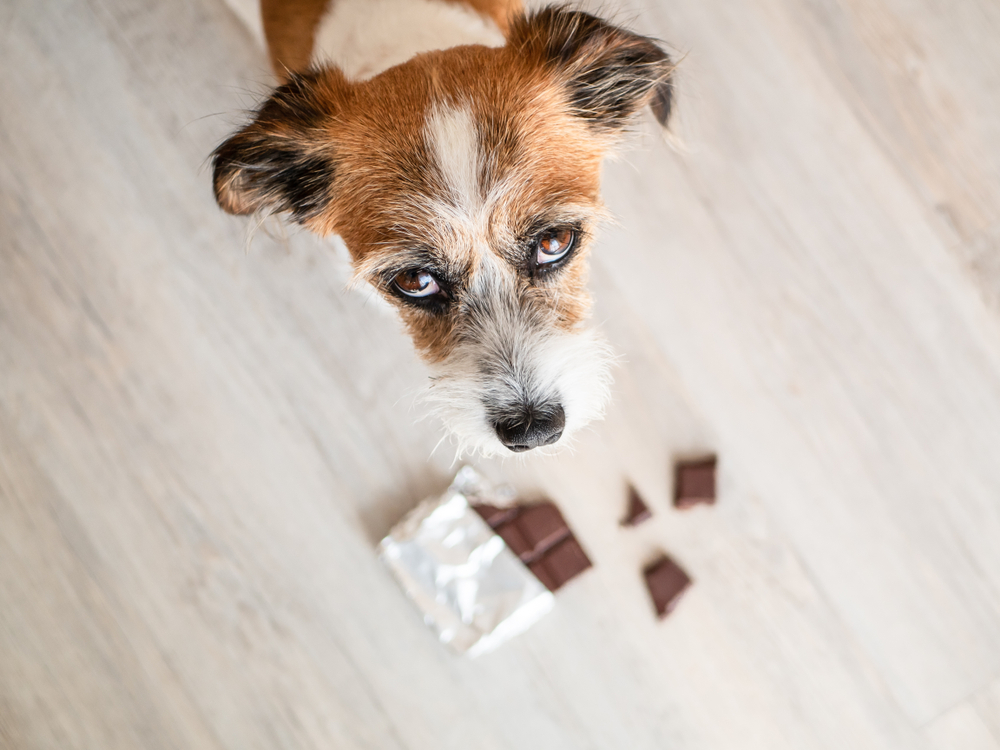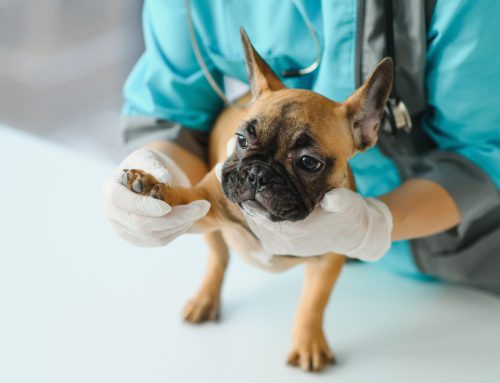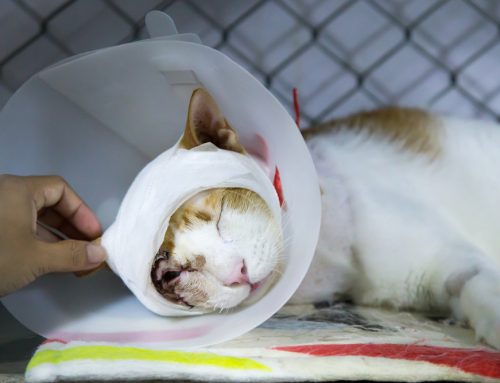The world is a dangerous place when you explore everything with a sniff and a taste. When your pet determines whether something is tasty enough to eat, they can fall victim to a multitude of toxins in your home and yard. Keep your four-legged friend safe from fatal toxins by familiarizing yourself with some of the most common poisons they may encounter with this information from the Neighbor Veterinary Centers Nederland team.
Toxic foods for pets
Food items are some of the most common toxins pets get their paws on, largely because pets, especially dogs, have insatiable, non-discriminatory appetites. Popular foods that are toxic to dogs and cats include:
- Alcohol — Like people, pets can suffer from alcohol poisoning, although a much smaller amount can cause toxicity. Pets who consume too many cocktails can experience vomiting, diarrhea, central nervous system depression, difficulty breathing, tremors, and in severe cases, may fall into a coma or die from alcohol poisoning. Pets can also suffer from alcohol poisoning if they eat unbaked yeast dough.
- Chocolate, coffee, and caffeine — Methylxanthines, the toxic substances found in chocolate and caffeine-containing products, can significantly impact your pet’s bodily functions. Depending on the amount ingested, you may notice your pet:
- Vomiting
- Having diarrhea
- Panting
- Drinking and urinating excessively
- Appearing restless and hyperactive
- Tremoring
- Seizing
If they consume enough chocolate, coffee, or soda, your pet can develop a heart arrhythmia and potentially die. Keep in mind that the darker the chocolate, the more dangerous.
- Grapes and raisins — The tartaric acid in grapes and raisins is toxic to pets. Unfortunately, the amount of grapes that causes toxicity is not known. Some pets can develop acute kidney failure after eating a few grapes, while others can eat a large amount and be fine. Play it safe by keeping these sweet fruits away from your pet.
- Macadamia nuts — These tasty nuts can cause weakness, depression, vomiting, tremors, and hyperthermia in dogs. Toxicity is compounded if the nuts are chocolate-covered, or included in a trail mix that also contains raisins.
- Onions, chives, leeks, and garlic — These members of the Allium plant family can cause gastrointestinal (GI) irritation, red blood cell damage, and anemia. Cats are more susceptible to toxicity, but dogs can also develop problems if they eat large enough quantities.
- Xylitol — Xylitol is a popular sweetener in many food products, as well as inedible items, such as toothpaste and sunscreen. If your pet eats sugar-free gum or candy, or any other product containing xylitol, they can suffer severe hypoglycemia or liver failure.
Toxic medications for pets
Any medication can prove toxic for pets if they ingest a large enough quantity. Pet owners can poison their pet if they treat their pet’s health issues with their own prescription or over-the-counter (OTC) medication. Some of the most common medication toxicities in pets include:
- Nonsteroidal anti-inflammatory (NSAID) drugs (e.g., aspirin, ibuprofen, naproxen)
- Acetaminophen
- Antianxiety and antidepressant medications (e.g., Xanax, Zoloft)
- ADHD medications (e.g., Adderall)
- Blood pressure medications (e.g., ACE inhibitors, beta blockers)
- Sleeping medications (e.g., Ambien)
Pets can also suffer from toxicity with veterinary products. For example, if you apply a topical canine flea preventive on your cat, they can develop tremors, ataxia, drooling, vomiting, diarrhea, seizures, or die. Proper dosing is also critical for preventing toxicity from veterinary products, so always check with your veterinarian before administering any medication to your pet.
Toxic household items for pets
Paint, glue, and cleaning chemicals are among the most common household items toxic to pets. While you may not expect your pet to ingest something that tastes and smells bad, they may be intrigued by the product’s texture, or tempted to lap up a spill. Depending on the product, your pet can develop toxicity by ingesting, inhaling, or touching, so read the product’s label carefully to assess its safety for use around pets.
Toxic lawn and garden items for pets

Southeast Texas has its fair share of toxic plants that can harm your pet, so take the time to learn what you should avoid with garden plants or plants you bring indoors. Some of the most toxic plants and outdoor items for your pet include:
- Fertilizers
- Herbicides
- Rodenticides
- Pesticides
- Sago palm
- Lilies
- Aloe vera
- Oleander
- Texas mountain laurel
- Pothos
- Monstera
- Chrysanthemum
For a more comprehensive list of toxic plants, check out the ASPCA’s guide.
If your furry pal gets their paws on a poison, contact an animal poison control hotline immediately. Then, contact your Neighbor Veterinary Centers Nederland team for emergency care. Keep the animal poison control case number, so our team can collaborate with their veterinary toxicologist to ensure your pet receives the most effective care as quickly as possible.







Leave A Comment